Google has released a new search feature -Artificial Intelligence (AI) Overviews. When a user enters a question into Google, the search engine provides AI-automated short paragraphs at the top of the page to help users find what they need.
While this sounds amazing, AI Overviews have many ramifications for users, businesses relying on web traffic to generate income, and the search industry.
As a SaaS SEO Agency, we have to keep our clients one step ahead of any significant SEO changes. We've spent hours digging into the new AI Overview feature to understand how marketers can leverage this technology's benefits.
The result is this benchmark report that explores the key trends in AI overviews and what this means for SEO practices.

What We'll Cover:
What is Google AI Overview?

Google AI overviews are Google's latest search engine evolution. Essentially, this is an expansion of Google snippets, which uses generative AI to provide quick and easy information to users. How it works is simple-users ask Google a question, and it provides an answer through comprehensive AI-automated paragraphs.
In other words, Google will veer from its traditional approach of providing a list of links or a featured snippet at the top of search queries. Instead, Google's AI sifts through the available content for each search query and delivers a summarized response of what it considers the most relevant information.
Google introduced AI overviews to maintain usage on its platform by giving users the answers they need without searching through loads of links. This feature can impact how businesses drive organic traffic, and companies must re-approach their SEO campaigns.
Google AI Overviews Significantly Vary by Industry
The presence of AI Overviews varies greatly depending on industry content. The Healthcare sector has the highest AI Overviews at 63%, while the B2B tech boasts the second-highest AI Overviews at 32%, followed by e-commerce at 23% and insurance at 18%.
Only 14% of the education and entertainment industries' content features Google AI Overviews. On the other end of the spectrum, finance, restaurants, and travel feature nearly no AI Overviews in their search results.
Based on data by Zapier, there are a few critical reasons why Google AI Overviews feature in search queries for some industries and not others:
- Your money or your life (YMYL) keywords face greater scrutiny: YMYL keywords are typically associated with content in industries like finance, healthcare, legal and insurance. Because this content has a massive impact on users, Google scrutinizes them much more than other keyword categories. Instead, Google helps websites in these industries drive traffic by featuring articles from authoritative and high-ranking sources. Domains such as .gov or .edu are more likely to feature in the top search results for YMYL keywords. The only exception to this is that Healthcare content, as we've discussed, features the most AI Overviews.
- Commercial search intent has an impact: Search queries with commercial purposes, including products and services, experience a significant drop in AI Overviews. For instance, over 15% of pet product-related keywords triggered AI Overviews in June 2024, but this dropped to a little over 1% in July.
- Specific keyword categories trigger AI Overviews: As the research confirms, some keywords are more likely to trigger AI Overviews in search results. The reason behind this boils down to search intent and how impactful the content is. Critical content that can influence how users make imperative personal choices is less prone to have AI Overviews. This content must come from reputable sources so users get the correct information.
User Criticism Impacts the Presence of AI Overviews
As generative AI answers are new to Google search – and the technology itself is in its infancy – it's no surprise that the feature has been found to provide misleading and incorrect answers. Google's AI Overviews have recommended users add glue to pizza and described possible health benefits of running with scissors as a cardio exercise.
Users were highly concerned about the harmful and potentially life-threatening impacts answers like this could have. The media coverage of these mistakes was immense:

Soon after this negative backlash, Google published a blog post about how it was improving AI Overviews and preventing silly and inaccurate answers. Regardless, AI Overviews have decreased since Google rebranded this feature from Search Generative Experience. Insights by SERanking highlight that only 8.71% of search results have AI Overviews, down from 64%.
SEOClarity conducted similar research on decreasing AI Overviews but came to a different conclusion. This report indicates that up to 7.6% of searches feature AI Overviews, a decrease from 17.4%.
Despite different results, both studies make the same point – Google has decreased the presence of AI Overviews in search results. This is likely because Google only initiates AI answers when they are most beneficial and accurate.
AI-Generated Answers Have an Inconsistent Impact on Mobile Search
Data from Semrush Sensor indicate that AI Overviews appear in 0.55% of desktop searches but 0.81% of mobile searches. SEOClarity also supports this notion, revealing that AI Overviews feature 30 times more on mobile than on desktop. As over 58% of all web traffic comes from mobile devices, mobile-optimized content and, in turn, AI Overviews may become imperative to an organization's SEO efforts.
However, a study by SparkToro highlights that Google's introduction of AI Overviews led to a considerable decrease in mobile search queries. As such, the study pinpoints the drop in mobile search queries as a critical motivation for Google to revise its approach to AI integration in search results.
Customers are likely less motivated to use their mobile devices to find quick answers through AI – especially as AI Overviews had a very controversial introduction.

There May be Implications for Google in the Search Industry
SparkToro's research also illuminates crucial challenges that Google must overcome for this AI integration.
While this by no means threatens Google's market position in the search industry, it does impact how internet users feel about using Google in the future.
- Zero-click Searches: Almost 60% of Google search queries in the US and the EU end in no clicks – this is called zero-click searches. It's best to slightly underscore this estimate as it doesn't include AI voice search queries.
- Self-referral Traffic: Another critical concern for Google's AI integration is that 30% of clicks from overviews direct users to Google-owned platforms, such as Google Maps, YouTube, and Google Images. While this enables Google to maintain its monopoly in the search industry, many experts do not favor this. In an Antitrust case, a federal Judge found Google guilty of using self-referral traffic to monopolize the search market.
- Low Click-through Rates to Non-Google Websites: Besides self-referral traffic, Google has alarmingly low CTR to websites it doesn't own. Only 360 out of 1,000 clicks in the US direct users to a non-Google website, which again is a cause for concern among industry experts.
Businesses Face Implications, Too

There is a growing concern about the economic downsides of AI Overviews for businesses that rely heavily on income from web traffic. On the user's end, getting quick information from an AI Overview is much easier than clicking on multiple sources and different links and browsing through various content types to find what they need. The result is that CTR is quickly decreasing.
Google's adoption of AI technology threatens the financial well-being of millions of e-commerce stores, media outlets and content creators. If more users find satisfaction in AI Overviews, they'll be less likely to click on links and reach websites.
These new search features could impact 25% of web traffic – a substantial loss of billions of dollars generated through web traffic every year.
Organizations Must Re-align Their SEO Strategies
With fewer users likely to click on links and land on websites, how businesses approach SEO will need to change.
Remember, AI Overviews make information much quicker to receive and understand. Users can ask complex questions, and Google will respond through an AI-generated summary that leaves users with little reason to visit suggested web pages. However, being one of the sources cited by the summaries could be a potentially huge traffic source.
Organizations must expect a drastic change in search engine rankings as Google has introduced new ranking factors. Rather than its traditional focus on keyword research, this tech giant requires companies to:
- Focus on High-Quality Content: Google's AI overviews retrieve information from relevant, authoritative sources. So, businesses must create comprehensive, well-researched content to increase their chances of featuring in AI overviews.
- Use Structured Data: Structured data makes it easier for Google to recognise essential information on your website, making it easier to secure AI overviews.
- Optimize for Questions: In addition to optimizing your content for target keywords, you also need to optimize for question-based keywords. Remember, AI overviews prioritize content that directly answers a user's question, so ensure your content covers this.
So, what does that mean for your business? You need a tailored SEO campaign to help you maintain high search engine rankings.
Check out our blog for the best SEO tips and insights to drive users to your website.
AI Overviews Will Play a Vital Role in How Businesses Grow Online
While we don't yet know what the future holds for AI Overviews, one thing is sure – organizations must adjust their approach to online marketing. Generating organic web traffic, primarily through mobile devices, will become more challenging.
Although Google has faced scrutiny for its introduction of AI Overviews, and many industry experts dispute its monopolization in the search industry, Google is here to stay.
That means AI Overviews are, too.
It's more critical than ever for companies to work with expert SEO teams to maintain their web traffic and revenue.
Ready to design your SEO campaign? Contact MADX Digital today!
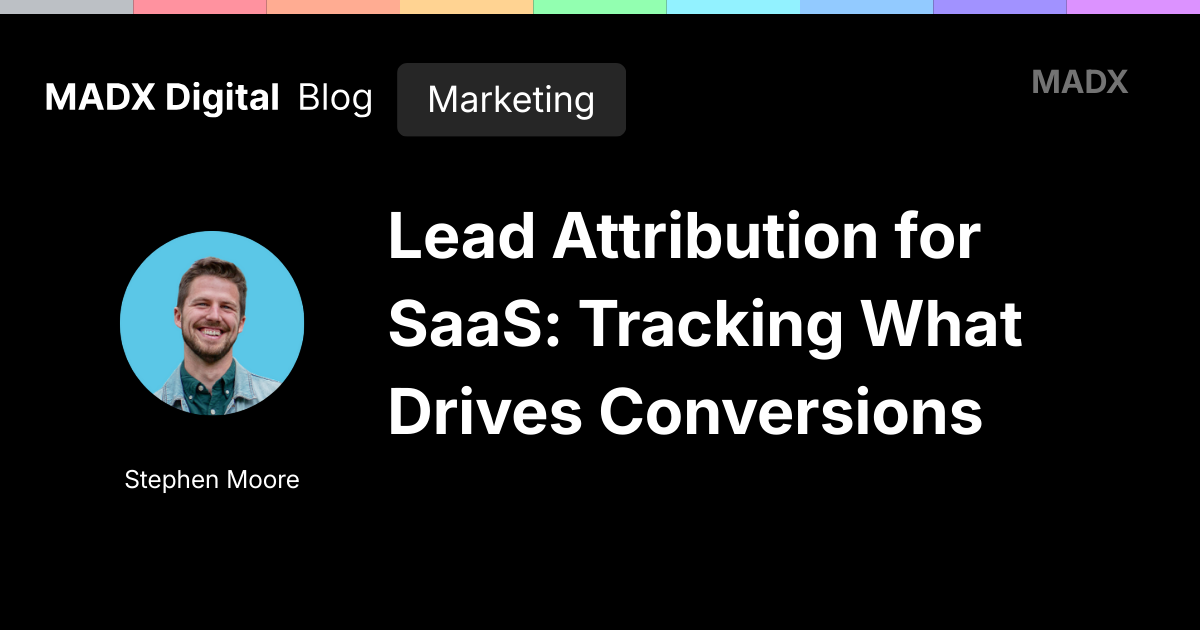
SaaS Lead Attribution: Tracking What Drives Conversions
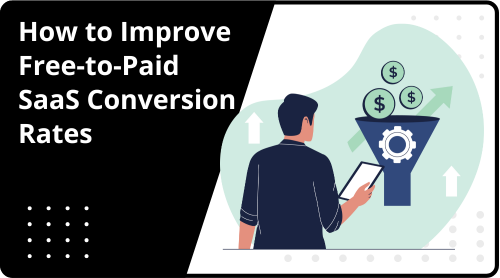
How to Improve Free-to-Paid SaaS Conversion Rates (Sign-up → Paid)
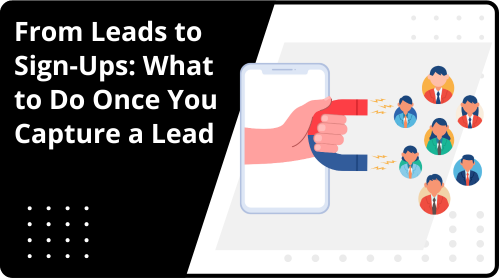
From Leads to Sign-Ups: What to Do Once You Capture a Lead
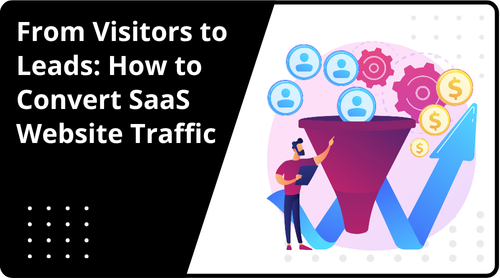
From Visitors to Leads: How to Convert SaaS Website Traffic
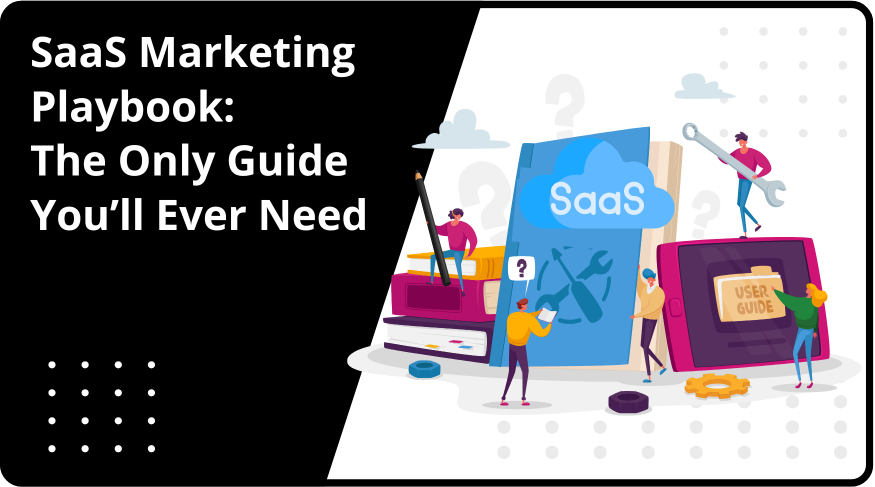

.png)